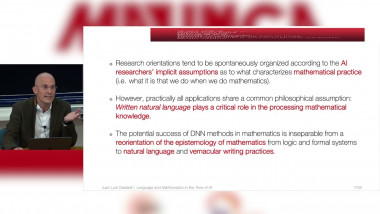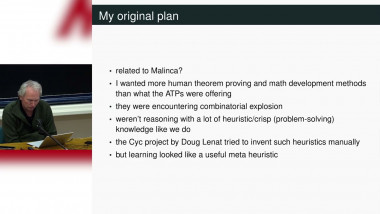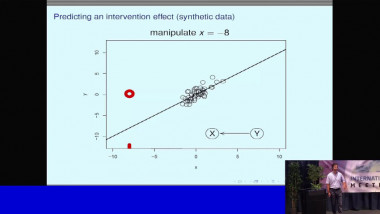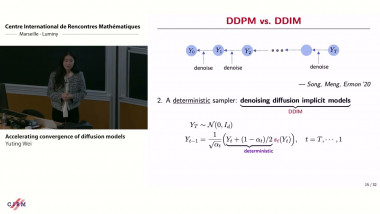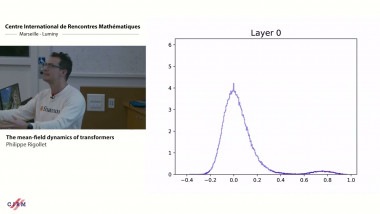Appears in collection : CEMRACS 2023: Scientific Machine Learning / CEMRACS 2023: Apprentissage automatique scientifique
In this talk, I will give an overview of recent successes (and some failures) of combining modern, high order discretization schemes with machine learning submodels and their applications for large scale computations. The primary focus will be on supervised learning strategies, where a multivariate, non-linear function approximation of given data sets is found through a high-dimensional, non-convex optimization problem that is efficiently solved on modern GPUs. This approach can thus for example be employed in cases where current submodels in the discretization schemes currently rely on heuristic data. A prime of example of this is shock detection and shock capturing for high order methods, where essentially all known approaches require some expert user knowledge as guiding input. As an illustrative example, I will show how modern, multiscale neural network architectures originally designed for image segmentation can ameliorate this problem and provide parameter free and grid independent shock front detection on a subelement level. With this information, we can then inform a high order artificial viscosity operator for inner-element shock capturing. In the second part of my talk, I will present data-driven approaches to LES modeling for implicitly filtered high order discretizations. Whereas supervised learning of the Reynolds force tensor based on non-local data can provide highly accurate results that provide higher a priori correlation than any existing closures, a posteriori stability remains an issue. I will give reasons for this and introduce reinforcement learning as an alternative optimization approach. Our experiments with this method suggest that is it much better suited to account for the uncertainties introduced by the numerical scheme and its induced filter form on the modeling task. For this coupled RL-DG framework, I will present discretization-aware model approaches for the LES equations and discuss the future potential of these solver-in-the-loop optimizations.
